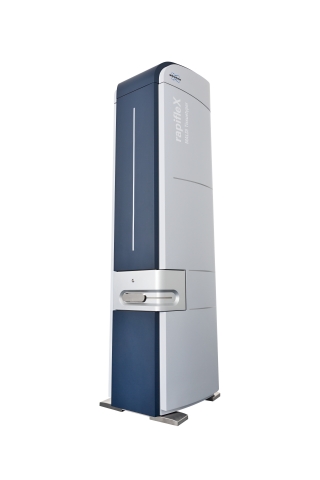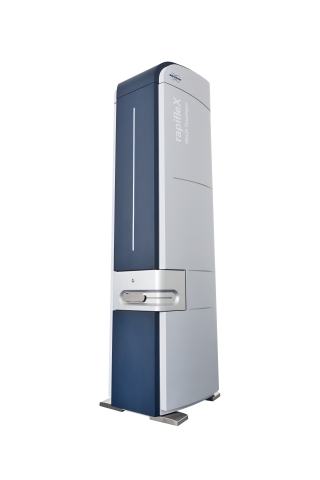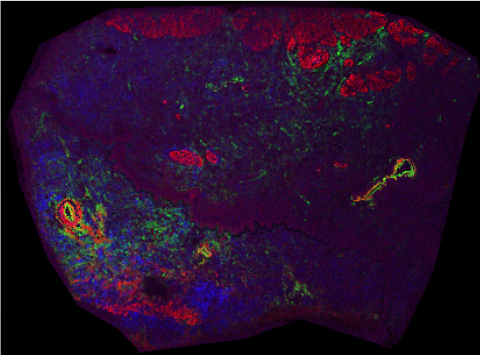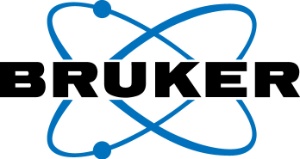ST. LOUIS--(BUSINESS WIRE)--At the 63rd ASMS Conference on Mass Spectrometry & Allied Topics (ASMS), Bruker (NASDAQ: BRKR) announced the launch of the novel MALDI Tissuetyper solution, based on the new rapifleX MALDI-TOF Mass Spectrometry system.
The introduction of the revolutionary rapifleX as the new instrument platform for MALDI imaging anatomical pathology research further enhances Bruker’s leadership position for MALDI-TOF-based applications solutions. The new rapifleX system eliminates many previous bottlenecks in mass spectrometry imaging (MSI), with much improved speed, throughput, ease-of-use, robustness and spatial resolution. At the same time, MSI maintenance efforts are reduced to a minimum by a streamlined design of the ion source for maximum uptime and optimized accessibility.
The new MALDI Tissuetyper solution based on the rapifleX instrument redefines the key performance measures for MALDI imaging and allows for completely new projects and measurement strategies. The rapifleX system offers by far the highest laser repetition rate on the market, combined with the best MALDI imaging spatial resolution. The instrument has a removable, self-aligning ion source for highest customer service convenience.
The MALDI Tissuetyper solution works up to 20 times faster than traditional MALDI-TOF systems, using Bruker’s break-through, proprietary smartbeam™ 3D laser. The new scanning smartbeam 3D laser provides a fast moving laser-beam which is synchronized with the movement of the MALDI target stage. In combination with the game-changing laser repetition rate of 10 kHz, this architecture allows for real high throughput where MALDI imaging researchers have dramatically increased flexibility in pixel size or target tissue size. Depending on the sample size, typical tissue sections can now be imaged in approximately 30 minutes. Mass spectrometry images from small tissue biopsies are available within a few minutes.
Tissue-typing of protein signature distributions continues to be one of the most powerful techniques available in areas such as anatomical pathology or biomarker research. Current research results indicate potential future clinical pathology applications in tumor staging, supporting therapy decisions or disease prognosis. The MALDI Tissuetyper offers exclusive statistical analysis software and bioinformatics tools for data mining, as well as visualization of two-dimensional and even three-dimensional imaging datasets from multiple tissue sections.
Dr. Ron M.A. Heeren, Professor for Molecular Imaging at Maastricht University, The Netherlands, said: “Translational clinically oriented research with mass spectrometry imaging (MSI) is critically dependent on speed and robust operation. Current instrumentation has been limiting its full adaptation. The new rapifleX-based MALDI Tissuetyper solution allows us to finally overcome that limitation. It enables us to engage in high-throughput clinical studies and establishes MSI as a powerful and reliable information source for personalized medicine.”
Professor Dr. Axel Walch, Head of the Department for Analytical Pathology, Institute of Pathology, at the Helmholtz-Center in Munich, Germany, added: “The analysis of tumor heterogeneity is one of the most important biomedical research challenges in oncology and personalized medicine. MALDI imaging is perfectly suited to get an unbiased molecular view on tumor heterogeneity. The speed and performance of the MALDI Tissuetyper solution gives us for the first time the possibility to analyze even large tumor specimen over meaningful patient cohorts with sufficient spatial resolution to get a comprehensive understanding of tumor heterogeneity.”
Dr. Wolfgang Pusch, Executive Vice President for Clinical MALDI Solutions at Bruker Daltonics, commented: “The ease-of-use and throughput capabilities make the new rapifleX MALDI-TOF the platform of choice for clinical research applications in anatomical pathology. Bruker is committed to drive the MALDI Tissuetyper solution not only for mass spectrometry applications, but more and more also in anatomical pathology workflows. For this application, the rapifleX is far ahead concerning speed, throughput, robustness, uptime and ease-of-use.”
About the Bruker MALDI Tissuetyper
The MALDI Tissuetyper solution enables to use MALDI-TOF mass spectrometry as a powerful mass spectrometry imaging (MSI) tool, which is highly complementary to traditional imaging technologies in histology. The MALDI Tissuetyper extracts molecular information as a proteomic fingerprint, which displays peptides and small proteins. In contrast to traditional histological tissue analysis, the MALDI Tissuetyper does neither require a molecular probe nor an antibody. The MALDI Tissuetyper offers multiplex analysis of multiple potential biomarkers simultaneously in an untargeted approach. The MALDI Tissuetyper provides complementary information to immunohistochemistry (IHC) and in many cases can differentiate cell populations that cannot easily be differentiated by IHC. In additionally, it might save valuable biopsy material, in cases where only limited tissue sample is available. The MALDI Tissuetyper can be used for biomarker discovery studies, but also for multi-marker tissue-typing and classification. The MALDI Tissuetyper is for research use only.
About Bruker Corporation (NASDAQ: BRKR)
For more than 50 years, Bruker has enabled scientists to make breakthrough discoveries and develop new applications that improve the quality of human life. Bruker’s high-performance scientific research instruments and high-value analytical solutions enable scientists to explore life and materials at molecular, cellular and microscopic levels.
In close cooperation with our customers, Bruker is enabling innovation, productivity and customer success in life science molecular research, in applied and pharma applications, in microscopy, nano-analysis and industrial applications, as well as in cell biology, preclinical imaging, clinical research, microbiology and molecular diagnostics. For more information, please visit: http://www.bruker.com.





